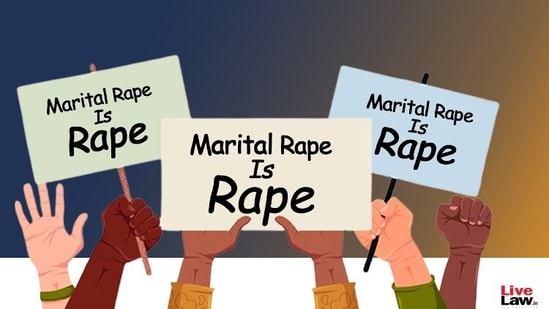The issue of recognizing marital rape as a crime has been a matter of significant debate in India. Currently, the government has maintained its position of not criminalizing marital rape, arguing that doing so could destabilize the institution of marriage and lead to potential misuse of the law. Marital rape, which refers to non-consensual intercourse between married partners, is a criminal offense in many countries, but India continues to exclude it from the definition of rape under Section 375 of the Indian Penal Code.

Source:- bbc news
The government’s stance is often rooted in concerns about the sanctity of marriage and the belief that such laws could harm family cohesion. Critics of this position argue that the refusal to recognize marital rape undermines the rights and dignity of women, perpetuating a patriarchal mindset that treats marriage as a contract of consent for sex. Activists highlight that consent is crucial, regardless of marital status, and that denying legal protection to married women in abusive situations violates their fundamental rights to equality and safety.
Source:- news 18
While various petitions have been filed in the courts challenging the exception of marital rape, the government has consistently defended the current legal framework. The Law Commission of India and other bodies have debated reforms, but change has been slow.
International bodies, including the United Nations, have urged India to reconsider its position, emphasizing that marital rape should be recognized as a violation of human rights. Until legal reforms are implemented, the conversation around marital rape in India remains contentious, reflecting deeper societal and cultural issues regarding gender roles, consent, and the institution of marriage.
Share your views in the comments

